 Dear Edna Sloane by Amy Shearn
Dear Edna Sloane by Amy Shearn Format: eARC
Source: supplied by publisher via Edelweiss
Formats available: paperback, ebook
Genres: epistolary novels, literary fiction
Pages: 250
Published by Red Hen Press on April 30, 2024
Purchasing Info: Author's Website, Publisher's Website, Amazon, Barnes & Noble, Kobo, Bookshop.org, Better World Books
Goodreads
Edna Sloane was a promising author at the top of her game. Her debut novel was an instant classic and commercial success, vaulting her into the heady echelons of the 1980s New York City lit scene. Then she disappeared and was largely forgotten. Decades later, Seth Edwards is an aspiring writer and editor who feels he’s done all the right things to achieve literary success, but despairs that his dream will be forever out of reach. He becomes obsessed with the idea that if he can rediscover Sloane, it will make his career. His search for her leads to unexpected places and connections, and the epistolary correspondence that ensues makes up this book, a novel infused with insights and meditations about what our cultural obsession with the "next big thing" does to literature, and what it means to be a creative person in the world.
My Review:
There are plenty of variations on the saying that “Writing is easy. You just open a vein and bleed.” (I’ve always thought this was Hemingway, but a bit of Google-Fu turns up an earlier attribution to sports writer “Red” Smith in 1949.
But the story in this book has things a bit differently – at least from a certain literary point of view.
Writ-ING is actually easy, full stop. Lots of people do it every day in one form or another. We may not write letters much anymore, but we “tweet” tweets – or we did when it was called ‘Twitter’. Do people now ‘ex’ on X? (Just those types of digressions are common in the correspondence that makes up the bulk of this epistolary novel.)
Whatever tweets are called these days, we also write emails, memos and reports, caption Facebook and Instagram posts and text each other incessantly. It’s all writ-ING. Which doesn’t mean that any of it is either good or effective – just that it happens a lot more than we think it does.
But we’re not writ-ERS, and that difference is a big part of what this book is exploring.
Once upon a time in the 1980s, Edna Sloane was a young WRITER, a debut novelist, a literary wunderkind, whose first novel, An Infinity of Traces, took the book world by storm and became an instant classic.
Then she disappeared from the scene – at least the literary scene. The speculation was endless – even without social media as we know it today. Whether Edna Sloane was murdered, kidnapped, walked away on her own recognizance or got locked up in an institution of one kind or another, the woman was nowhere to be found.
Agatha Christie famously disappeared in 1926 but she was found in a spa hotel two weeks later. Edna Sloane wasn’t found at all until a junior editor at an online literary magazine tracked her down in 2017.
Dear Edna Sloane, the book, is the cumulated correspondence between the titular novelist, now nearing 60, and Seth Edwards, the young would-be writer who pretends he’s pursuing the elusive Sloane for an article to save his job. What he’s really doing is pouring out all of his own angst about just how difficult it is to be a WRITER no matter how desperately he tries to hold onto his dream.
And Edna answers. Not with platitudes, but with truth – the kind of truths that her own novel was so rightfully famous for. Seth’s quest for Edna brings Edna back into the world – even as it echoes the plot of her famous novel and pushes him out of it.
Escape Rating B-: There’s a life imitates art imitates life aspect to this story that draws the reader in more than one might expect – certainly more than this reader expected. At the same time, it is also very, ‘lit-ficcy’ in that there’s not a lot of action but there is a ton of angst.
That it doesn’t wallow in itself or its angst – in other words, that it goes about its business without getting carried away endlessly – makes it a relatively short bit of literary fiction, and the quest to find Edna Sloane carries the story along even though the events that take place around it fade into the background more than a bit – much as Seth does in the end.
What Seth’s side of the correspondence brings to the table – or screen – is his desperation to hang onto a dream that is slipping away. Seth is caught on the horns of the dilemma about the circus worker stuck with the job of cleaning up elephant poop who won’t leave because he’d have to give up show business.
Edna, on the other hand, brings back the heady, glorious days of the literary scene in the 1980s, even as she puts perspective on just how naive and innocent she was in her 20s – just as Seth is now. She also stands at the crossroads of her own dilemmas. Then, it was about balancing so-called ‘real life’ with her burning need to write – and being forced to choose and adopt a persona that would get her through the day and get the work of living done.
As well as discovering that she could either be feted for the work or do the work when it came to writing, but not both. Writing was easy, but being a writer in the sense of being part of the star-making machinery and finding a way to support herself as a writer was damn hard and in the end she set it aside even if that was not what she planned or desired.
And yes, there’s plenty about the emotional labor of women in that part of her life but it’s not the whole of the thing at all.
Still, Edna needs her writing to reconcile her past – and even more so the effect of her father’s past as a Survivor (of Auschwitz) – whether she’s feted or celebrated for it or not. So she’s never really stopped, even when it seemed like she really, truly, seriously had stopped. She stopped being ‘a writer’ but that vein was still open so she never stopped writing after all.

 A Mischief of Rats by
A Mischief of Rats by 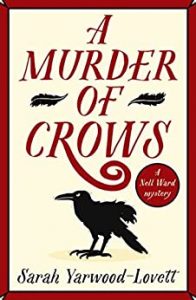 Whichever of her two personas is her alter ego, both of them are entirely too busy during the jam-packed weekend this story takes place.
Whichever of her two personas is her alter ego, both of them are entirely too busy during the jam-packed weekend this story takes place.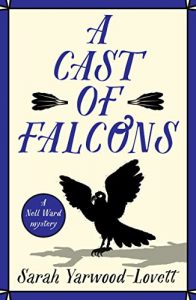 Escape Rating B-: This third book in the
Escape Rating B-: This third book in the  I admit that this is a ‘me’ thing that may not be a ‘you’ thing. Howsomever, for this reader it feels like Nell’s romantic trials and tribulations are a bit over the top, particularly as her rich and aristocratic background – along with her surprisingly functional relationship with her parents – seem to have insulated her from a whole lot of regular stresses and issues to the point where over-the-top is the only direction left.
I admit that this is a ‘me’ thing that may not be a ‘you’ thing. Howsomever, for this reader it feels like Nell’s romantic trials and tribulations are a bit over the top, particularly as her rich and aristocratic background – along with her surprisingly functional relationship with her parents – seem to have insulated her from a whole lot of regular stresses and issues to the point where over-the-top is the only direction left.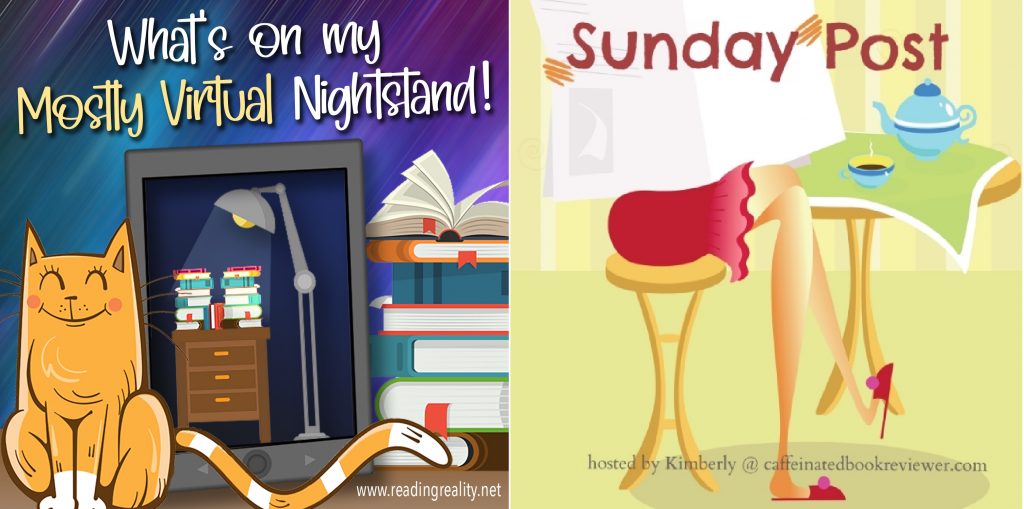

 Current Giveaways:
Current Giveaways: Blog Recap:
Blog Recap: Coming This Week:
Coming This Week:














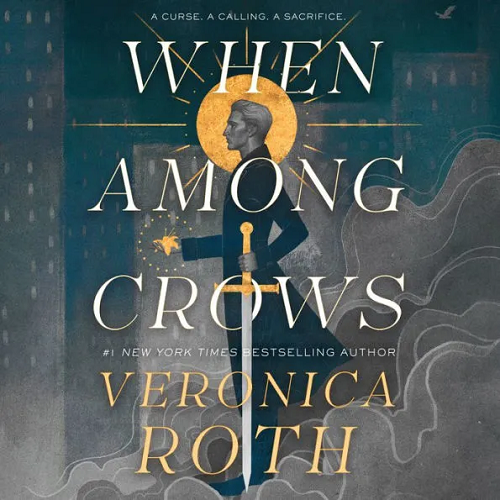 When Among Crows by
When Among Crows by  At the same time, the way this story drew in so many Slavic myths and legends that I itched for a mythopedia (I was driving, that would have had terrible consequences) reminded me, a lot and very fondly, of Neil Gaiman’s
At the same time, the way this story drew in so many Slavic myths and legends that I itched for a mythopedia (I was driving, that would have had terrible consequences) reminded me, a lot and very fondly, of Neil Gaiman’s 
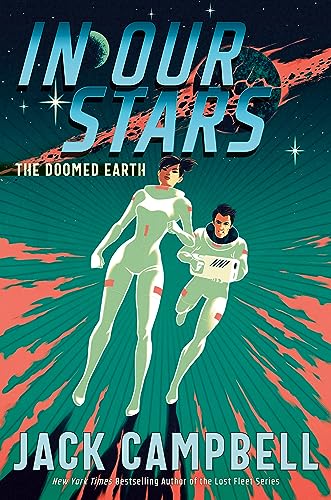 In Our Stars (The Doomed Earth, #1) by
In Our Stars (The Doomed Earth, #1) by 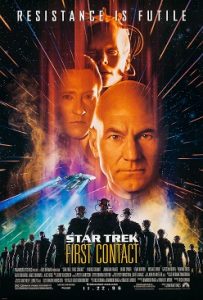 Escape Rating B: I couldn’t get the resemblance to Trek out of my head, and that affected my reading of this book a lot because it felt just a bit too familiar. To the point where even though I didn’t know what was coming, I sorta/kinda knew what was coming. Also, to the point where I couldn’t resist falling down a Trek time travel rabbit hole. Or should I say, a time travel black hole, because that device was used frequently and often, even if that’s not quite what happened here.
Escape Rating B: I couldn’t get the resemblance to Trek out of my head, and that affected my reading of this book a lot because it felt just a bit too familiar. To the point where even though I didn’t know what was coming, I sorta/kinda knew what was coming. Also, to the point where I couldn’t resist falling down a Trek time travel rabbit hole. Or should I say, a time travel black hole, because that device was used frequently and often, even if that’s not quite what happened here.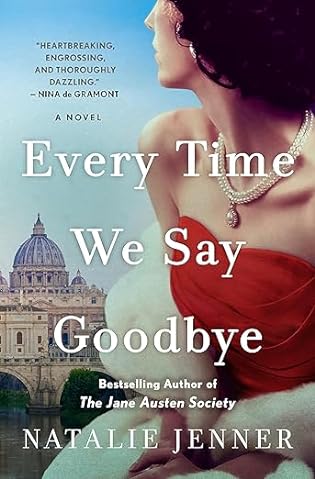 Every Time We Say Goodbye (Jane Austen Society, #3) by
Every Time We Say Goodbye (Jane Austen Society, #3) by  I picked this up because I loved the author’s earlier book,
I picked this up because I loved the author’s earlier book,  Escape Rating B: Before I get to the story of the book, I absolutely need to say something about the audiobook. Specifically, that the audiobook is excellent. The reader, Juliet Aubrey, was a perfect choice and she made the whole thing better and carried me through even at points where I wondered how the parts of the story connected to each other because she was just awesome.
Escape Rating B: Before I get to the story of the book, I absolutely need to say something about the audiobook. Specifically, that the audiobook is excellent. The reader, Juliet Aubrey, was a perfect choice and she made the whole thing better and carried me through even at points where I wondered how the parts of the story connected to each other because she was just awesome. .
.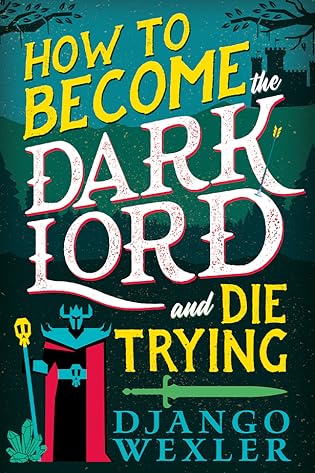 How to Become the Dark Lord and Die Trying (Dark Lord Davi, #1) by
How to Become the Dark Lord and Die Trying (Dark Lord Davi, #1) by  Because it’s not
Because it’s not 
 Current Giveaways:
Current Giveaways: Blog Recap:
Blog Recap: